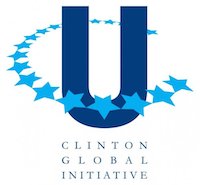With no end in sight on the turmoil in Iraq and oil prices and gas prices on the rise as a result, Americans United for Change (AUFC) have launched a new ad campaign encouraging the U.S. Environmental Protection Agency (EPA) to stay the course and not turn its back on the Renewable Fuel Standard (RFS).
‘Control’ will being airing on national cable stations including MSNBC, CNN and Fox News June 3, 2014 just head of the 4th of July weekend. The strategy is one designed to let people know that preserving the RFS and cheaper choices at the pump for Americans means more stability in gas prices even during times of turmoil in other countries.
The bottom line, says AUFC, now is not the time for the U.S. to slip further into dependency on foreign oil by discouraging ethanol and biodiesel production, which boosts our nation’s economy, rural communities, national security and environment.
Jeremy Funk, communications Director for Americans United for Change said of the new TV campaign, “If anything should give the EPA pause before deciding to roll back the Renewable Fuel Standard, it’s the bubbling turmoil in Iraq. While the escalating violence has yet to significantly disrupt oil production in the region, just speculation that it will has already sent oil prices on their way to a 6-year high heading into the 4th of July weekend.”
Funk continued, “Any time there is unrest in oil-producing regions overseas, it’s a recipe for jittery markets and inflated oil prices back home. It’s the price American consumers pay at the pump again and again living in a nation so reliant on foreign oil. It’s the reason why the nation can’t afford to scale back the RFS now and put all of our eggs in Big Oil’s basket. Big Oil says ‘don’t worry, we’re producing more domestic oil than ever’, but they don’t mention it only amounts to a third of what Americans consume each day. Big Oil doesn’t mention they’re actively trying to widen the domestic supply vs demand gap by spending millions of dollars campaigning to put out of business their cheaper, cleaner renewable fuels competition that accounts for 10 percent of the nation’s gas supply.”
Dismantling the RFS, says Funk, would take away what protection American consumers do have from supply shortages, market whims and Middle East instability. He also notes that not continuing forward with the RFS would undermine America’s national security by requiring more imports from regions whose policies and interests often clash with our own.
This TV ad follows on the heels of several others all focused on keeping the RFS in place including ‘The Kingdom’, ‘Bottom Line’, ‘Simple Choice’, and ‘Why Mess With Success’.











